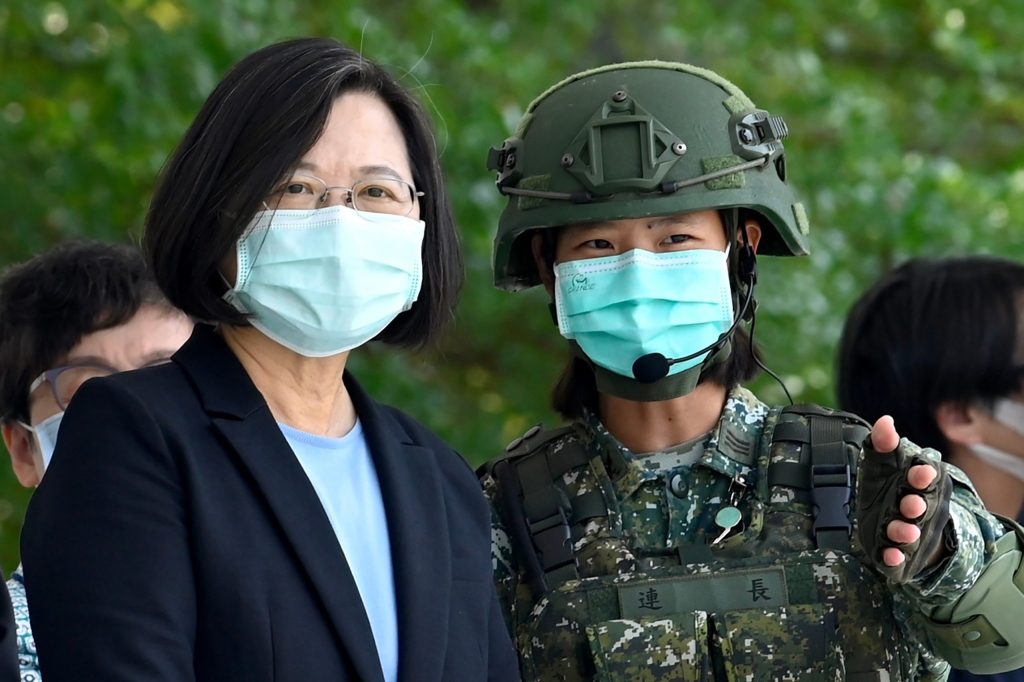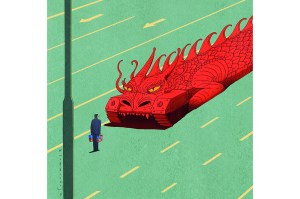After a landslide victory in January’s election, Taiwanese president Tsai Ing-wen was re-inaugurated on Wednesday at a scaled-down ceremony in Taipei. As ever, Taiwan’s relationship with China was the central issue of the election. This year, though, a greater sense of urgency surrounded the vote, primarily because of the instability in Hong Kong.
Now, polling day feels like it belongs to a distant past, taking place amid rumblings of a new virus infecting residents of Wuhan across the Taiwan Strait.
Although Taiwan has rightly received much praise for its response to coronavirus, the past few months have not been without significant difficulties. Above all, coronavirus has reinvigorated discussion of Taiwan’s position on the global stage and its exclusion from the World Health Organization (WHO) at the hands of the Chinese government.
Taiwan’s already precarious position relative to the WHO was compounded last month when the organization’s director general Tedros Adhanom Ghebreyesus accused Taiwan of launching a racist campaign against him.
However, explicit mention of the WHO was absent from Tsai’s address. Instead, she commended her government’s coronavirus achievements while promoting Taiwan’s sense of democratic national identity:
‘No matter the difficulties we face, we can always count on our democracy, our solidarity, and our sense of responsibility towards each other to help us overcome challenges, weather difficult times, and stand steadfast in the world.’
This absence reflects a central contradiction that Tsai must negotiate in almost everything she does, but which has taken on particular importance in recent months. While seeking to expand Taiwan’s international legitimacy, she must not be seen as incendiary. Such a move would play into Beijing’s Taiwanese narrative — that the country’s leadership has a disregard for regional stability. Taiwan’s decision to withdraw from the vote on its observer status in the World Health Assembly (WHA) this week is a case in point.
Instead, on the eve of the inauguration, Tsai posted a slick video on her Twitter, demonstrating not only the robustness of Taiwan’s domestic response to the virus but also its aspirations to assist the international community. The video opens, not with images of Taipei, Hualien or Kaohsiung, but with New York, Ljubljana and Milan. In its references to China, the dialogue doesn’t pull any punches: ‘honest people are braver than those that lie to themselves’.
This is a video tribute to the people of Taiwan.
As a true friend, Taiwan always stands ready to lend a helping hand. To achieve #HealthForAll, we have highlighted the #TaiwanModel to show the world that #TaiwanCanHelp & #TaiwanIsHelping. pic.twitter.com/2xKwOa6bat
— 蔡英文 Tsai Ing-wen (@iingwen) May 19, 2020
It is these omissions and intimations, as is often the case in political communication in Taiwan, that are invested with the greatest meaning. Another significant absence from Tsai’s speech was any mention of the so-called 1992 Consensus, the agreement which ostensibly forms the basis of any cross-Strait negotiations. The Consensus was an agreement signed by the then leaders of China and Taiwan. It stipulated that there is indeed only one China, but left it open to both sides to define what that ‘China’ meant. From the outset of her presidency four years ago, Tsai has not recognized this agreement.
Although Tsai claimed that cross-Strait relations had reached a ‘historical turning point’, in practice her speech emphasized her commitment to maintaining Taiwan’s current diplomatic strategy. ‘We will not accept the Beijing authorities’ use of one country, two systems to downgrade Taiwan and undermine the cross-strait status quo,’ she said.
It is likely that the ‘turning point’ Tsai refers to is not a drastic alteration of the structure of cross-Strait relations, but a demand for change in Beijing’s attitude. To Tsai, her landslide victory is a clear sign that the Taiwanese want to be treated with the parity Beijing has long refused to acknowledge.
The extent to which this will materialize greatly depends on how the world deals with the fallout from the coronavirus. It remains to be seen what form the post-coronavirus international order will take, but as the integrity of international institutions is tested, and attitudes — particularly toward China — harden, Taiwan will be presented with both new challenges and opportunities.
Action by Australia exemplifies this shift. In April, the Australian government called for an independent investigation into China’s handling of the coronavirus outbreak and, later in the month, added fuel to the fire by endorsing Taiwan’s re-entry to the WHO.
Around the inauguration, it was Secretary of State Mike Pompeo’s message of congratulation that generated the most vociferous response from Beijing. ‘Her courage and vision in leading Taiwan’s vibrant democracy is an inspiration to the region and the world,’ he said.
The Chinese Communist party’s English-language newspaper, the Global Times, responded with a fiery editorial condemning Pompeo’s message to Tsai, as well as attempts by Taiwan to gain observer status at the WHA. ‘At this time,’ the editorial reads, ‘the US and Taiwan want to play petty tricks at a low cost, which is too naive. We will make them feel pain in some places that they can’t think of.’ China has not ruled out taking back Taiwan by military force if necessary.
***
Get three months of The Spectator for just $9.99 — plus a Spectator Parker pen
***
In the coming years, there will be forces that remain within Taiwan’s control, some beyond. Tsai can continue to leverage the international attention garnered by its coronavirus response, as well as its donations of medical supplies to other nations (including one million surgical masks to the UK). It can also encourage those nations to be a more prominent voice for Taiwan in international institutions.
However, Beijing has shown that it is willing to take decisive action against those who threaten its claim on Taiwan. Earlier this week, China announced it would put 80 percent tariffs on Australian barley exports. And in the coming years, a decision by China to poach Taiwan’s few remaining diplomatic allies will remain a present threat.
Tsai Ing-wen begins her second four-year term with high domestic support in an unpredictable international landscape. Her commitment to the cross-Strait status quo remains clear, but it is only after the post-coronavirus international order settles that the true scope of her possibilities will become clear.
This article was originally published onThe Spectator’s UK website.


















